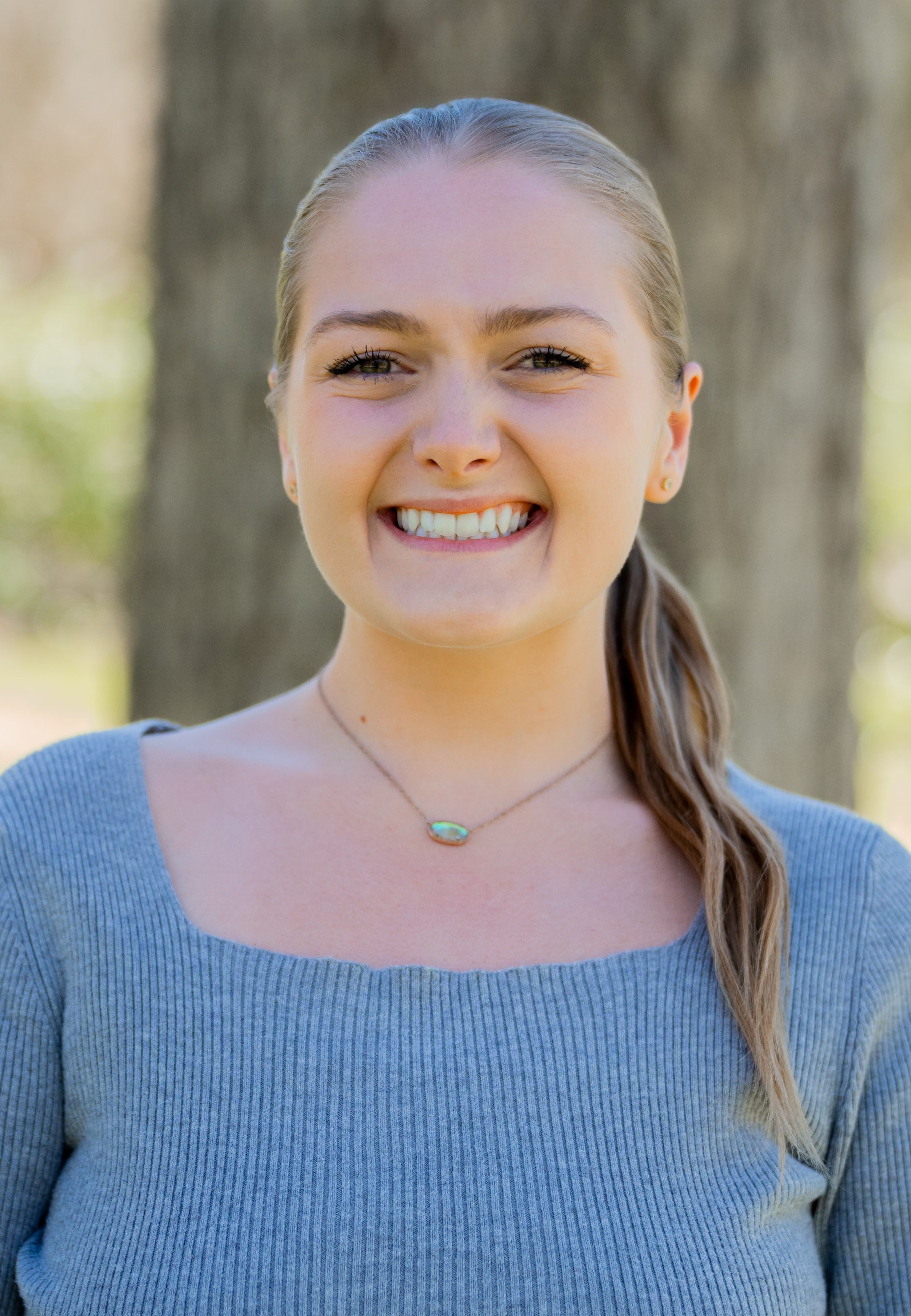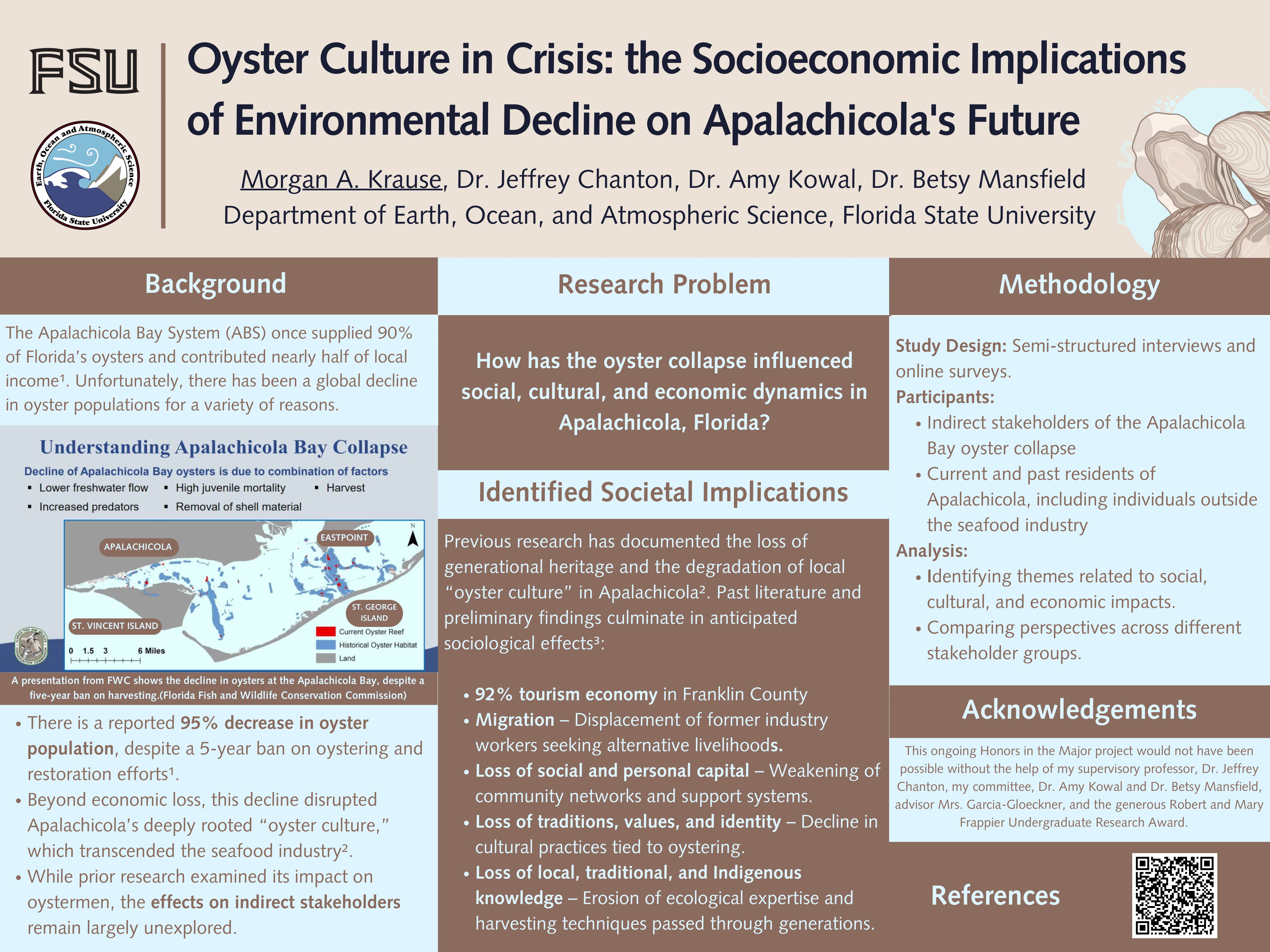Research Symposium
25th annual Undergraduate Research Symposium, April 1, 2025
Morgan Krause Poster Session 1: 9:30 am - 10:30 am/ Poster #164

BIO
My name is Morgan Krause and I am from Tampa, Florida. I am a junior studying Environmental Science and Policy, working towards attending law school in the near future. Describing my current involvements, I am the president of the Maji Project, a student-led organization dedicated to tackling the water crisis. I have an on-campus job as a University Ambassador, representing FSU and the Admissions team during prospective and admitted student tours, Admissions panels, and more. Outside of my student involvements, I am also invested in completing my Honors in the Major thesis in the fall of 2025. I am honored to have been recently awarded the Robert and Mary Frappier Undergraduate Research Award through FSU’s IDEA grant program. With my current research, I intend to connect societal and environmental wellbeing by interviewing residents in a rural, coastal community that have faced catastrophic environmental disturbances over the course of multiple decades.
Oyster Culture in Crisis: the Socioeconomic Implications
Authors: Morgan Krause, Dr. Jeffrey ChantonStudent Major: Environmental Science and Policy
Mentor: Dr. Jeffrey Chanton
Mentor's Department: Earth, Ocean, and Atmospheric Sciences Mentor's College: Arts and Sciences Co-Presenters:
Abstract
The collapse of the oyster population in Apalachicola Bay, Florida, has had profound socioeconomic and cultural consequences beyond those observed within the seafood industry (Brown, 2016). Historically, the Bay supplied 90% of Florida’s and 10% of the nation's wild oysters, supporting thousands of jobs (FWC, 2024). In 2012, oyster population declined drastically, prompting a harvesting ban in 2020. While the oyster industry was once prominent in the areas surrounding Apalachicola Bay, the economy is now 92% tourism based based on recent FWC reporting. Apalachicola, and Franklin County, are both rural and coastal, leading to vulnerability and a prominent need for initiatives that foster stakeholder engagement. In order to include a diverse pool of stakeholders, there must be investigation into the number of individuals currently left out of the decision-making process.
Using a social-ecological systems framework, it examines indirect stakeholders—including business owners, service providers, and young residents—who may have experienced shifts in livelihood, cultural identity, and economic stability. Through qualitative interviews and thematic analysis, this research aims to identify key trends in community adaptation, frustration, and resilience. Findings will provide insight into the long-term societal effects of environmental collapse, informing future restoration efforts and policy decisions. By amplifying underrepresented voices, this study seeks to bridge the gap between ecological recovery and community well-being, ensuring that future management strategies align with the needs of those most affected.
Keywords: Environment Socioeconomic Culture

